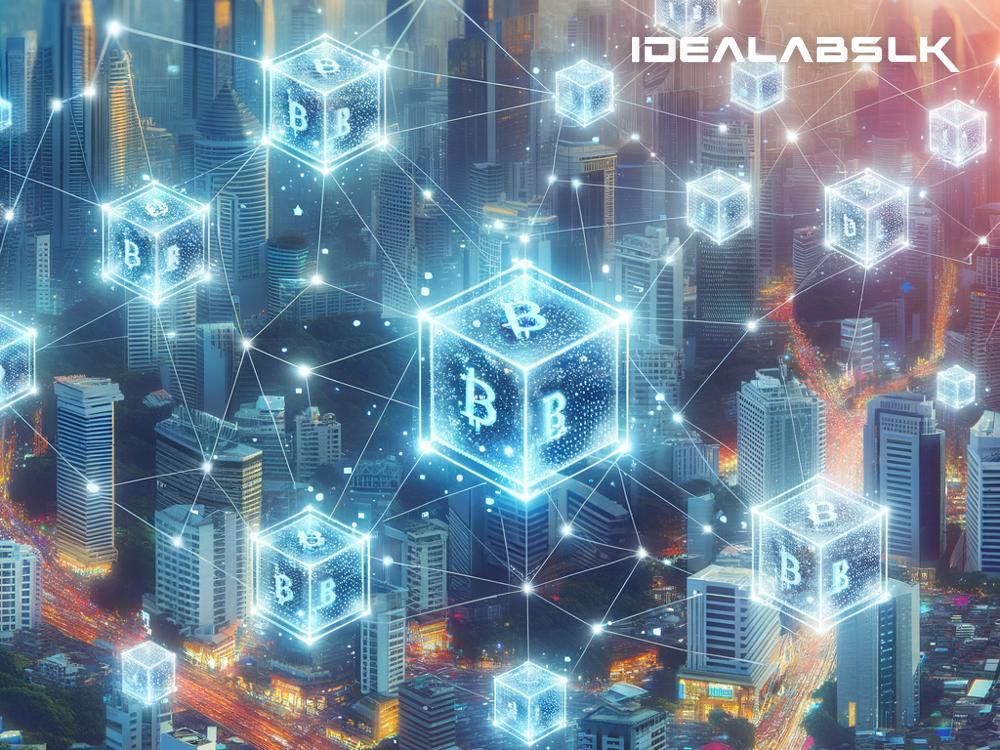Blockchain for Real Estate: Ensuring Secure, Transparent, and Fast Transactions
The real estate sector might seem traditional at its core, but it's on the cusp of a significant revolution, thanks to the advent of blockchain technology. Long gone are the days when the process of buying or selling property was a complex, paperwork-heavy, and time-consuming task. Blockchain is stepping in to simplify these transactions, making them more secure, transparent, and incredibly fast. But what is blockchain, and how exactly does it promise to revolutionize the real estate industry? Let's dive in and find out.
What is Blockchain?
Imagine a digital ledger that's not held by any single entity but instead spread across several computers, ensuring that it's almost impossible to hack or tamper with. That's blockchain for you. Initially developed to support cryptocurrency transactions, this technology is all about distributing information in a way that it becomes more secure and transparent. Each transaction or "block" is linked to the one before and after it, creating a chain of information that is secure and easily verifiable.
The Current Real Estate Labyrinth
Traditionally, buying a house involves multiple steps - finding a property, negotiating the price, securing financing, performing checks on the property's history, and finally, the closing process. Each of these steps involves paperwork, third parties like banks and lawyers, and a significant amount of time. Mistakes can be costly, and the risk of fraud or errors in property titles can lead to legal headaches down the line.
How Blockchain Can Help
Now, let's see how blockchain technology can tackle these issues head-on:
1. Enhanced Security
With blockchain, every transaction is recorded on a block with a unique, tamper-proof signature. This cryptographic protection ensures that once a transaction is logged, it can't be altered or deleted, significantly reducing the risk of fraud.
2. Transparency
Blockchain operates on a decentralized system, which means that every transaction is visible to all parties involved. This level of transparency helps build trust among parties and can eliminate disputes over transactions, as every action is recorded and verifiable on the blockchain.
3. Speed
The traditional real estate process involves numerous third parties and paperwork, which can take weeks or even months to complete. Blockchain can streamline these transactions by removing intermediaries, automating many of the steps involved, and significantly reducing processing time from months to just days or even hours.
4. Reduced Costs
By eliminating the need for middlemen and reducing the amount of paperwork, blockchain can substantially lower the cost of real estate transactions. Fees for lawyers, brokers, and banks can add up, and blockchain offers a more cost-effective approach by simplifying the process and reducing the need for these intermediaries.
Blockchain in Action: Real-World Examples
Several startups and companies are already leveraging blockchain technology to transform the real estate sector. For example, platforms are emerging that enable everything from property listings and sales to lease management and payments, all powered by blockchain. These platforms offer a more streamlined, efficient, and secure way to handle real estate transactions.
The Future of Real Estate with Blockchain
While blockchain technology in real estate is still in its early stages, its potential to transform the industry is undeniable. As more players in the real estate market begin to adopt blockchain, we can expect to see faster, more secure transactions, reduced costs, and an overall more efficient real estate market.
Blockchain's promise of transparency, security, and efficiency is set to make the dream of simplified real estate transactions a reality. The technology's ability to streamline processes, eliminate unnecessary intermediaries, and reduce costs and fraud makes it ideally suited to tackle the challenges of the real estate sector. As blockchain continues to evolve and more real estate professionals adopt it, the way we buy, sell, and manage property is poised for a significant transformation.

